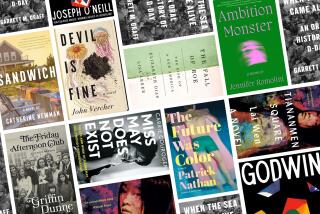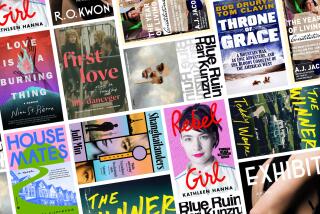‘The Sixties’ by Jenny Diski
- Share via
“The past,” Jenny Diski writes at the start of her memoir-cum-social-history, “The Sixties” (Picador: 148 pp., $14 paper), “is always an idea which people have about it after the event.” This is true in regard to no period of recent history so much as the 1960s. More than 40 years on, we have built up so many myths, so many ideas (as Diski would put it), that it’s nigh impossible to see the decade as it really was.
In this brief volume, Diski brings the period into focus via a largely personal approach. Born in 1947, she came of age in the London of Carnaby Street and rock ‘n’ roll, radical psychotherapist R.D. Laing and the Angry Brigade. She lived in a communal home, set up a free school, participated in a 1968 antiwar march that ended in violence in front of the U.S. Embassy in Grosvenor Square. She covers these and other issues (drugs, sex) in a style that is both tough and elegiac, looking back at the era with fondness as she assesses it in critical terms. “For a decade so notorious for its politically radical youth,” she notes dryly at one point, “it’s quite remarkable how little effect we had.”
Ultimately, Diski suggests, the 1960s were more about illusions than revolution. The truth is more prosaic but also more interesting: It was a period in which disposable income, easy access to education and hipster capitalism encouraged an explosion of youthful enthusiasm (and youthful self-indulgence) that, as all youth movements, existed in a bubble, willfully unaware of the complexities of adulthood or even that anyone had ever felt this way before.
“The compromises that adults make cause much of the suffering in the world,” Diski writes, “or, at best, fail to deal with the suffering. Acceptance of one’s lot, maintaining a silence about what can’t be said, lowering your expectations for your own life and for others, and understanding that nothing about the way the world works will ever change, is the very marrow of maturity, and no wonder the newly fledged children look at it with horror and know that it won’t happen to them -- or turn their backs on it for fear it will.”
It’s the measure of this book that she can simultaneously acknowledge this and embrace the messy, hopeful chaos of her own youth, in which “[n]arcissism meets the mirror stage and neither condition actually stops in infancy, especially when the times collude.”
-- David L. Ulin david.ulin@latimes.com
More to Read
The biggest entertainment stories
Get our big stories about Hollywood, film, television, music, arts, culture and more right in your inbox as soon as they publish.
You may occasionally receive promotional content from the Los Angeles Times.










